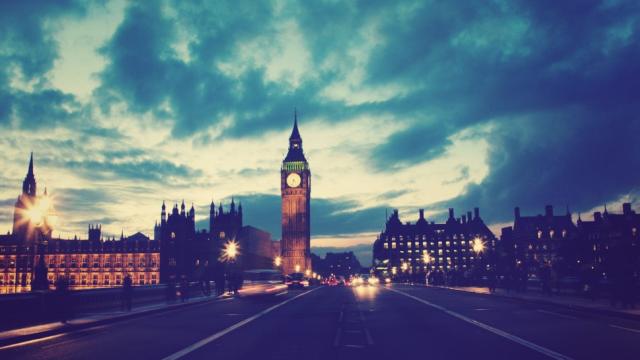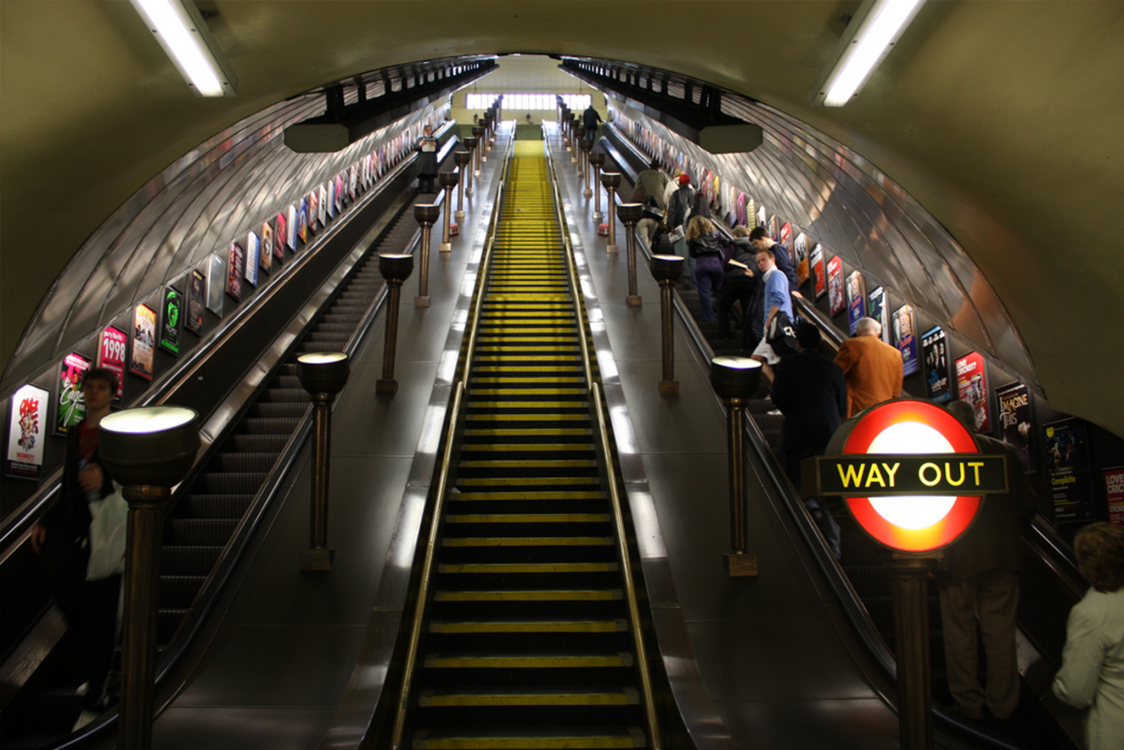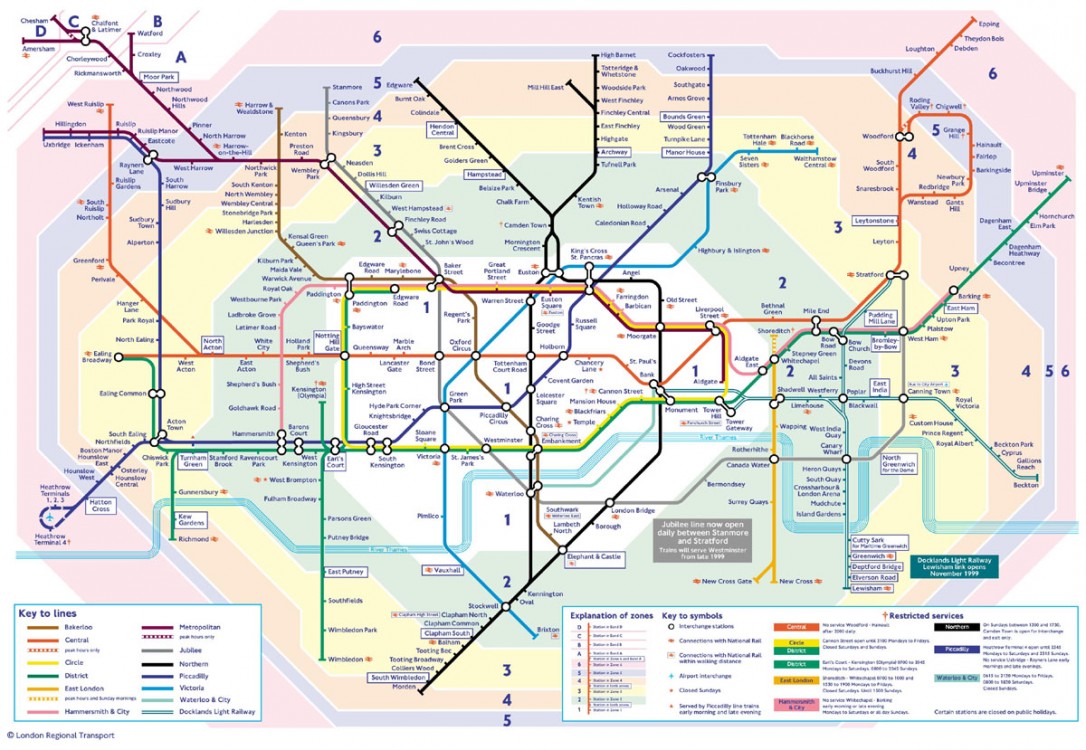
People living in London’s poorest neighborhoods are less likely to have access to the city’s transport network, a report by the London Assembly Labor Group has revealed.
The Tackling Poverty: One Bus Ride Away report, compiled by London Assembly member Val Shawcross, expands on an earlier report published in March 2014 about London's cost of living crisis.
In that paper, Shawcross, who is with the Labour Party, revealed that 84% of Londoners think the cost of public transport is too high – and furthermore, that the city's poorest communities have been disproportionately hit by rises in fares.
In particular, Shawcross wanted to see what steps London Mayor Boris Johnson could take to assist London’s poorest. She began to evaluate the Public Transport Accessibility Level (PTAL) scores for every district within the capital. She then matched the PTAL scores to the index of deprivation to see if there was a link between an area’s deprivation levels and its access to public transport.
A City that Prioritizes Vanity Projects
The report concluded there was a “strong link” between densely populated and economically deprived neighborhoods, and low access to transport links. Shawcross said the capital’s poorest communities should not be “left behind” and that there needs to be a “targeted plan to tackle transport inequality.”
“Throughout his time as mayor Boris Johnson has continually prioritized grand vanity projects at the expense of improving connectivity and fairness in our transport system,” said a spokeswoman for Shawcross.
A spokesman for the London mayor, however, was quick to jump on the defense, saying: “The network, which carries 2.4 billion passengers a year, serves each corner of the capital, with 9% of Londoners living within 400 meters of a bus stop.”
Inequality of Transport
Tackling Poverty: One Bus Ride Away is the latest example of inequality hindering London’s poorest. In an article last month for Occupy.com, I explored how Tech City – east London’s trendy and rapidly escalating tech cluster, which houses some of the biggest names in technology – hides the area’s potent social problems.
Tech City’s locus is in Shoreditch, a historically deprived and socially problematic region of east London. A stone’s throw from wealthy tech workers who have been pulled from oversees to work in Tech City for six figure salaries, live London’s poorest residents. As many as 40% of Shoreditch residents are considered NEET – not in education, employment or training.
Now, many are arguing, with jobs on their doorstep being snapped up by more "suitable" candidates, the NEETs of Shoreditch and other deprived London neighborhoods need in the very least a transport network enabling them access to jobs, educational opportunities and community resources.
A London Bus Network Starved of Investment
In his recently published 2050 Infrastructure Plan, Mayor Johnson recognized that “transport-led regeneration” was the “key to unlocking jobs, growth and opportunity.”
However, it's painfully ironic to many that during Johnson's tenure as London mayor, the city's bus network has been starved of investment – a condition contrary to improving employment. Despite expectations that London's population will grow by 1.2 million by 2020, Transport for London (TfL) plans to increase bus services by just 4% between 2012 and 2020.
As the recent London Assembly report highlights, instead of building the capital’s "bread and butter transport" to help reduce social and economic deprivation in London, the government has been prioritizing gimmicks and vanity schemes.
The city's cable car plan, for example, was deemed useless after Mayor Johnson spent £61 million ($98 million) to connect the Greenwich peninsula in east London with Royal Victoria Docks. In 2013, ridership figures uncovered by Snipe London revealed that only four people were using the cable cars as part of their daily commute to work – proving the scheme a total failure.
This expensive type of vanity transport project, which has been masqueraded as a transport upgrade, masks the deprivation reality that stains everyday life in east London. As the [New Statesman writes](http://www.newstatesman.com/future-proof/2013/11/londons-useless-cable-c... “It’s hard not to feel that if the cable car had been located somewhere in central or west London (that is, somewhere tourists might want to visit) instead of east London – and its views of mudflats, the Beckton Sewage Works, and yuppie apartment blocks – it might have done considerably better.”
Transport Inequality in Silicon Valley
London is not the only city showing signs that public transport is marred with inequality. In May, Joseph Mayton reported for Occupy.comabout angers escalating in San Francisco over private Google buses, which pick up Google employees using lanes and stops reserved for public transport vehicles.
As news emerged about an agreement struck between Google and other Silicon Valley companies, and San Francisco, giving the corporations access to more than 200 bus stops for $1 per stop, passions ignited within housing, labor and activist groups.
Now, with inequality marring London’s transport network as well, a similar anger is beginning to boil in the British capital.
“Fancy spending £61 million on a ridiculous cable car in the east end that no one ever uses!" said John Parry, a retired railway worker in London. "They’d have been better off bringing the fares down for good old-fashioned buses and trains. That way those on unlivable wages would at least be able to get to work."
Cash Fares Now Obsolete from London Buses
Twisting the inequality knife further, since July of this year, paying fares with cash is no longer allowed on London buses. The decision to make cash obsolete from city buses required a public consultation in 2013 involving 37,000 people. Travelers now pay for bus fares using the capital’s infamous "Oyster Card" – a pay-as-you-go smart card that comes pre-loaded with credit for traveling in London.
But did the "public consultation" to eradicate cash for London bus fares include a single mum living in Shoreditch – one who can’t afford to put food on the table for her family let alone pre-pay for an Oyster Card? Not likely.
3 WAYS TO SHOW YOUR SUPPORT
- Log in to post comments















